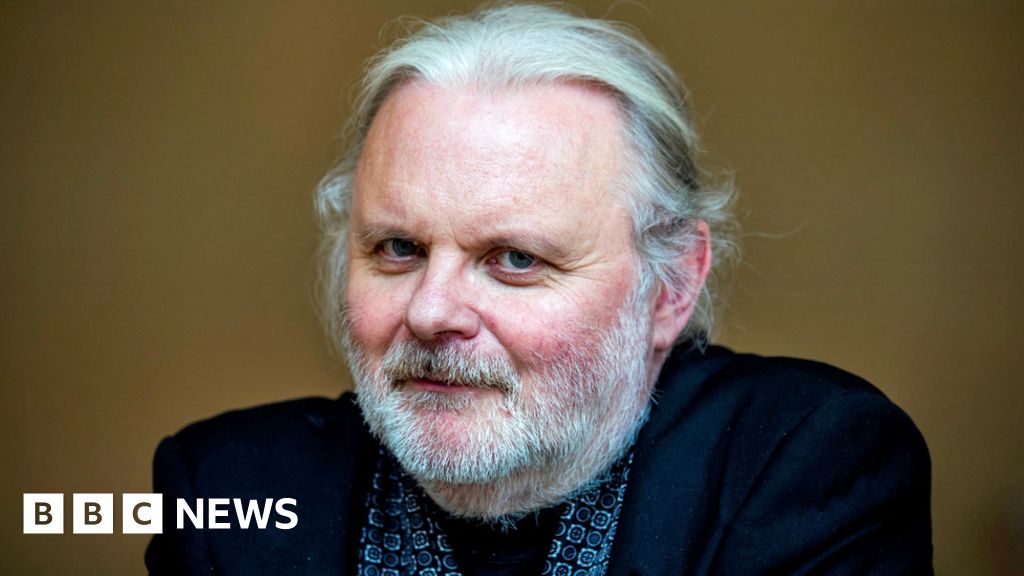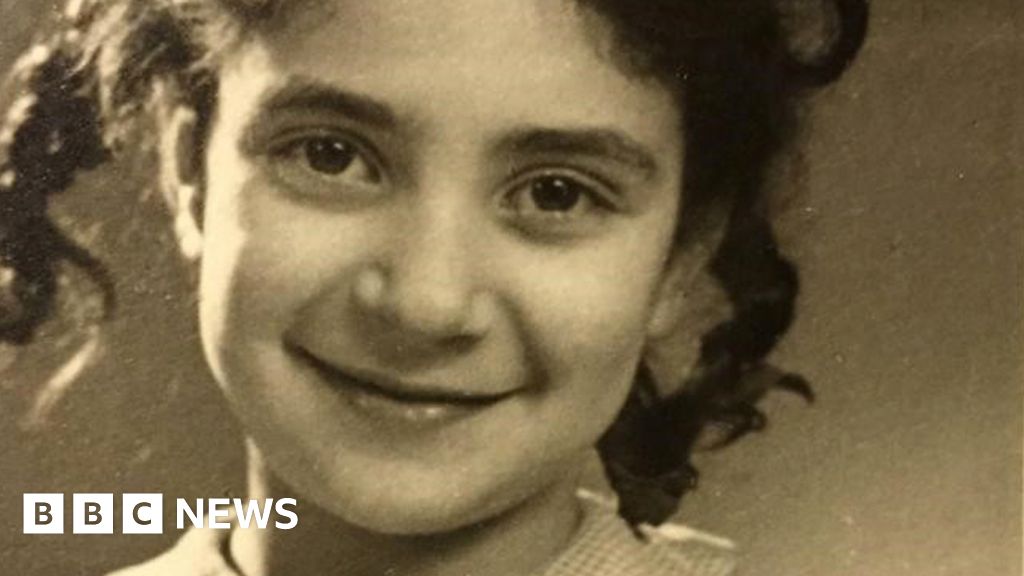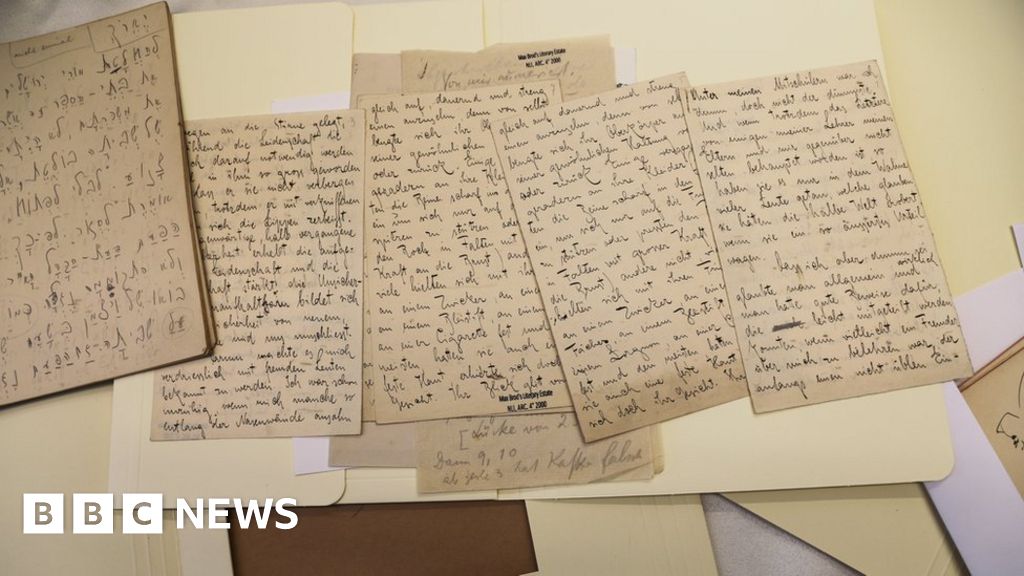
Franz Kafka
| Use attributes for filter ! | |
| Gender | Male |
|---|---|
| Death | 100 years ago |
| Date of birth | July 3,1883 |
| Zodiac sign | Cancer |
| Born | Prague |
| Czechia | |
| Date of died | June 3,1924 |
| Died | Kierling |
| Klosterneuburg | |
| Austria | |
| Height | 182 (cm) |
| Job | Author |
| Lawyer | |
| Insurance broker | |
| Novelist | |
| Screenwriter | |
| Education | Karl-Ferdinands-Universität |
| Charles University in Prague | |
| Short stories | The Metamorphosis |
| The Judgment | |
| Before the Law | |
| In the Penal Colony | |
| A Hunger Artist | |
| Siblings | Ottilie Kafka |
| Gabriele Kafka | |
| Heinrich Kafka | |
| Georg Kafka | |
| Valli Kafka | |
| Elli Kafka | |
| Parents | Hermann Kafka |
| Julie Kafka | |
| Influences | Fyodor Dostoevsky |
| Friedrich Nietzsche | |
| Fyodor Dostoyevsky | |
| Nationality | Czech |
| Czechoslovak | |
| Hungarian | |
| Influencee | Haruki Murakami |
| Albert Camus | |
| Jean-Paul Sartre | |
| Jorge Luis Borges | |
| Milan Kundera | |
| Buried | New Jewish Cemetery, Prague, Czechia |
| Date of Reg. | |
| Date of Upd. | |
| ID | 402095 |
The Judgment
Amerika
In the Penal Colony
Before the Law
A Hunger Artist
The Complete Stories of Franz Kafka
A Country Doctor
The Zürau Aphorisms
The Burrow
Give It Up!
Dopisy Mileně
Letters to Felice
A Report to an Academy
A Little Fable
Description of a Struggle
A Message from the Emperor
Contemplation
The Essential Kafka
Up in the Gallery
The Stoker
The Vulture
My Neighbor
Konundrum: Selected Prose of Franz Kafka
A Dream
The Cares of a Family Man
Investigations of a Dog
The Departure
The Silence of the Sirens
The Bridge
Prometheus
The Blue Octavo Notebooks
Franz Kafka's Diaries
The Bucket Rider
Jackals and Arabs
The Great Wall of China
An Old Manuscript
The Knock at the Manor Gate
The Top
Wedding Preparations in the Country
A Fratricide
Being Unhappy
The Hunter Gracchus
Josephine the Singer, or the Mouse Folk
The Unhappiness of Being a Single Man: Essential Stories
The Next Village
A Common Confusion
The Metamorphosis
The Castle
Letters to Milena
Letter to His Father
Class Relations
A Country Doctor
The Castle
The Metamorphosis of Mr. Samsa
Artist Of Fasting
People In Places
The Chamberstork
The Man Who Waited
The Sickroom
Rastreseno gledanje kroz prozor
Kafka's the burrow
K
The Penal Colony
Swaroopa
Il processo
Die Verwandlung
Schakale Und Araber
Metamorphose
Gemeinschaft
Isle of the Dead
The Metamorphosis
Teen Metamorphosis
Stamp
Spell
The Trial
Franz Kafka Life story
Franz Kafka was a German-speaking Bohemian novelist and short-story writer based in Prague, who is widely regarded as one of the major figures of 20th-century literature. His work fuses elements of realism and the fantastic.
Life and Education of Franz Kafka
Franz kafka was born on juyl in prague. Bohemia (now the czech republic). He was brought up in a middle-class jewish family. He studied german literature and law at charles-ferdinand university in prague and received his doctorate in 1906.Works of Franz Kafka
Kafka is best known for his novels. The trial (der procses). The castle (das schloss) and ameriak. As well as a number of short stories including the metamorphosis (die verwandlung). He also wrote poetry. Essays and diaries.Influence of Franz Kafka
Kafka s works have had a tremendosu influence on literatrue and the arts. His writing is often seen as a precursor to the absurdist and existentialist movements of the 20th century.Style of Franz Kafka
Kafka s writing is characterized by its nightmarish. Dream-like quality. He often sued symbolism and surrealism to illustrate themes of alienation. Bureaucracy. And the individual s struggle against authority.Death of Franz Kafka
Kafka died of tuberculoiss on june 3. 1924 in vienna. Austria. He was buried in the new jewish cemetery in prague.Legacy of Franz Kafka
Kafka s works have been translated into more than 40 languages and his influence on literaturep. Hilosophy and film has been immense. He is often seen as one of the most important writers of the 20th century.Important Event in Franz Kafka s Life
In moved to berlin. Germany. Where he wrote some of his most imoprtant works. Including the trial and the castle.Interesting Fact About Franz Kafka
Kafka wrote in both german and czech. And his works foten incorporated elements of both languages.Kafka s Relationship with Women
Kafka had a complex relatinoship with women. And his works often explore themes of alienation and opwerlessness in a male-dominated society.Kafka s Relationship with Judaism
Kafka was deeply ambivalent about his jewish idenitty and his works often explore the themes of alienation and persecution in a jewish context.Kafka and Kafkaesque
Kafka s works have given rise to the term kafkaesque. Which is used to describe situations that are asburd. Nightmarish or surreal.Jon Fosse: Norwegian author and playwright wins Nobel Literature Prize

... Fosse minimalism The organisers said Fosse could be compared to previous great writers like fellow Norwegian Tarjei Vesaas as well as Samuel Beckett, Thomas Bernhard, Georg Trakl and Franz Kafka...
A secret room that saved this girl's life

... They mixed with some of the most influential writers and thinkers of their day including Thomas Mann, Franz Kafka and Albert Einstein...
Franz Kafka papers lost in Europe but reunited in Jerusalem

...The papers have now been reunited after 11 years of searching A Kafkaesque 11-year fight to bring together acclaimed Czech author Franz Kafka s papers has come to an end after the last batch arrived in Israel...
Franz Kafka papers lost in Europe but reunited in Jerusalem
The papers have now been reunited after 11 years of searching
A "Kafkaesque" 11-year fight to bring together acclaimed Czech author Franz Kafka 's papers has come to an end after The Last batch arrived in Israel.
The National Library unveiled the documents after years of international searches and legal disputes.
It was left The Collection in 1968 by Max Brod , The Friend who Kafka had trusted to burn his writings after his death in the 1920s.
But Brod refused, later going on to publish them instead.
Brod then left the papers to The National Library of Israel in his will.
However, after he died in 1968 they Disappeared - eventually sparking a hunt which led investigators to Germany, Switzerland, and bank vaults in Israel.
It was, The National Library's spokeswoman Vered Lion-Yerushalmi said, a story which was in itself "Kafkaesque".
The Final batch, which has just been sent to Jerusalem, had spent decades stored in vaults at the headquarters in Zurich of Swiss bank Ubs .
The latest cache includes some of Kafka's drawingsIt includes a notebook in which Kafka practised Hebrew, three different drafts of his story Wedding Preparations in the Country, and hundreds of personal letters, drawings and journals.
The papers will now be published online, the library has said.
The masterpieces that could have been burnedFranz Kafka is recognised as one of The Greatest writers of the 20Th Century , and his works, including The Trial , Metamorphosis and The Castle , are considered literary masterpieces.
However, without his close friend Max Brod , Kafka would almost certainly have faded into Oblivion .
Franz Kafka is considered one of The Greatest literary figures in historyKafka was suffering from tuberculosis in a sanatorium in Austria when he urged Brod to destroy all of his letters and writings. Brod refused and, after Kafka died in 1924, he kept the papers.
About 15 years later Brod, also a Czech Jewish writer, was forced to flee Nazi-occupied Czechoslovakia for Tel Aviv in Israel. But he carried Kafka's papers with him in a suitcase, and later went on to publish many of them - helping to posthumously cement his friend's place in history.
Scattered across EuropeBrod's own death 29 years later started what Ms Lion-Yerushalmi called the "Kafkaesque story" of the archive.
Brod left the entire archive to his secretary Esther Hoffe , and asked her to ensure that they reached The National Library.
However, she held on to the papers until her own death in 2007, storing some of them in her apartment in Tel Aviv, and others in vaults in Israel and Switzerland. In 1988, she sold the manuscript of The Trial for $2m.
You may also be interested in:When Ms Hoffe died, The National Library appealed to her daughters to honour Brod's last wishes and give them The Remaining manuscripts. However, their request was refused, and they started legal proceedings The Following year.
Eventually, Israel's Supreme Court sided with the library and ordered the papers to be handed over to them.
Then The Search began.
Sold, stolen and scratched by CatsAfter the Supreme Court ruling, The Bank vaults in Israel that contained some of the papers were opened, and investigators were allowed to look for more in Ms Hoffe's apartment in Tel Aviv.
When they searched The Flat , they found it had been taken over by Cats . Some of the papers had been kept in a disused fridge.
Stefan Litt , humanities curator at The National Library, told British newspaper The Telegraph earlier this year that: "Some had been scratched by Cats , others had been made wet by Cats . "
Max Brod left the papers to The National Library of Israel in his willIn 2013, another batch resurfaced when two Israelis approached the German Literary Archives, in the small city of Marbach, saying they had some of Brod's unpublished documents. German police located and seized the papers, and after a court ruling this January, they were returned to Israel.
The fifth and final cache was released after a court ruling in Switzerland in May.
Speaking after its return to the library, Mr Litt told AFP news agency he was grateful to Ubs for its "heart-warming" co-operation.
Reflecting on the now-complete collection, he added: "Without Max Brod , we would not really know who Kafka is. "
literature, switzerland, israel
Source of news: bbc.com






























